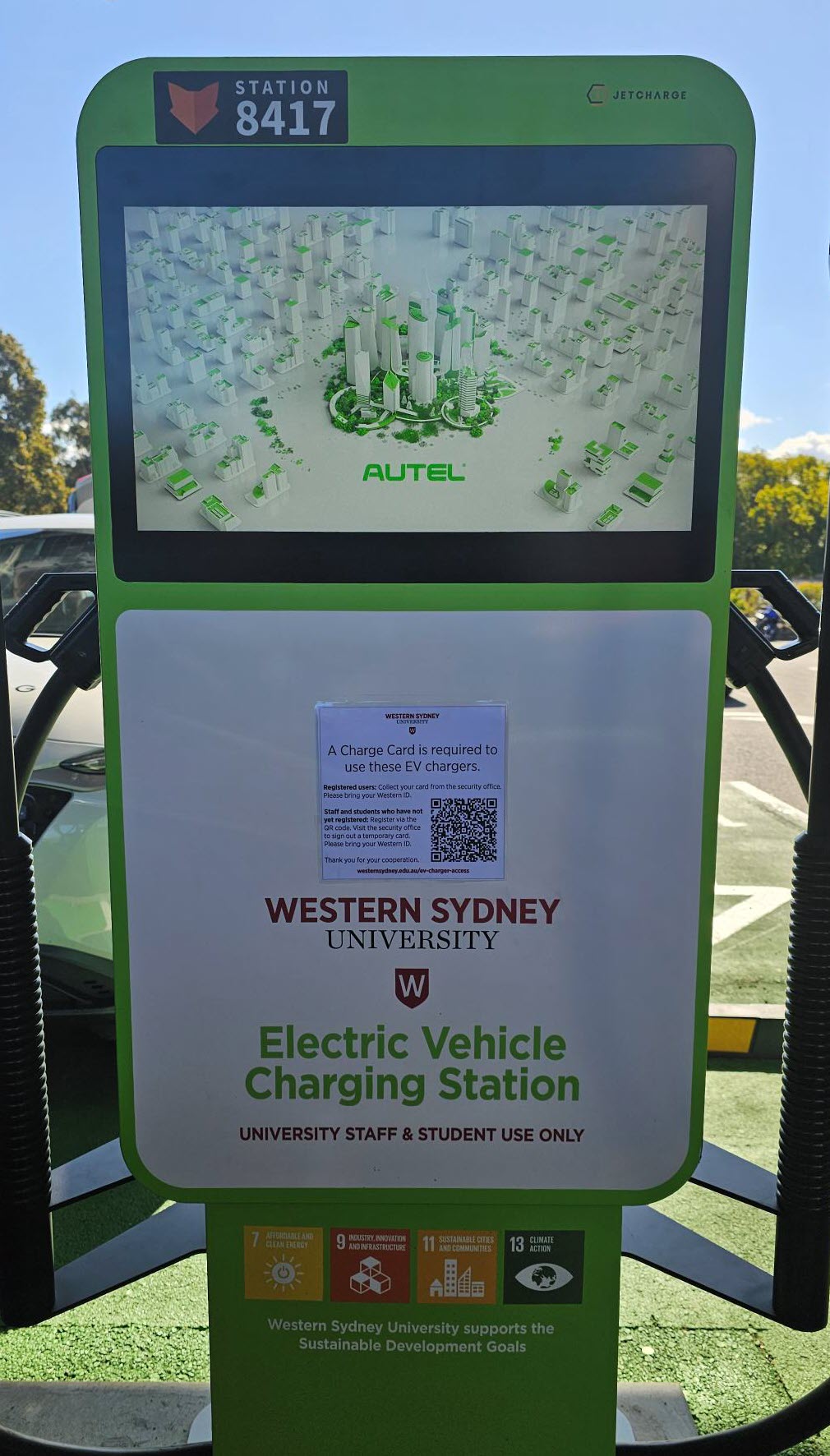Transportation & Travel

Critical aspects relating to transport and travel include: investigations into electric (EV) and hybrid vehicles in Western’s fleet; enabling EV charging points for staff and students; and potentially offsetting the carbon footprint of international travel. EV charging stations have been installed on Hawkesbury, Campbelltown, Kingswood and Parramatta South campuses.
In the development of future Western precincts, connectivity to public transport and accessibility, and precincts which enable active transport by walking and bicycling are critical.
Overview
Key Strategies Emerging
As hybrid and electric vehicles become more mainstream in Australia, greater opportunities for utilisation by fleet managers, staff and students will emerge. As fleet alternatives become more cost effective, an increase in uptake is expected, enabling a potential reduction in fuel use and direct use of campus renewable sources. Similarly, as electric vehicle use by staff and students increases, there is a need for a strategy regarding the provision of EV charging infrastructure across Western campuses.
International airline travel generates substantial greenhouse emissions, which are not currently reported in mandatory energy and greenhouse reporting (i.e. National Greenhouse Energy Reporting (opens in a new window)). However, opportunities for offsetting necessary international travel are developing, and need to be a component of strategies towards carbon neutrality.
Green Star accredited buildings which incorporate accessibility and transport connectivity, and Green Star communities of the future will by necessity have core design themes of transport accessibility and sustainability.
Management Initiatives Underway
As part of the stakeholder engagement in early 2022 for our progress towards carbon neutrality, options for fuel switching to EVs and related fleet and commuting options will be considered.
For the EV charging stations recently installed, one is already located under the pilot solar carpark at Kingswood. A key focus in 2022 will be to further integrate all EV charging points with solar carpark structures for cooling, safety and energy generation. and are being integrated with solar carparks.
Related Living Lab Initiatives
Compliance Requirements and Risk
Practical engagement with sustainable transport options is a very visible component of sustainable organisational practice.
Trends and Interdependencies
Electric vehicles are rapidly becoming more accessible and cost-effective, with uptake dependent upon the establishment of charging infrastructure.
Accessibility and transport connectivity is a critical component of community responses to climate change implications.
Targets
| 2023 | EV Charging station on 4 campuses achieved |
|---|---|
| 2024 | Charging stations integrated with solar carparks achieved |
Initiatives and Case Studies
EV charging
Electric Vehicle charging infrastructure is now established on four campuses: Hawkesbury, Kingswood, Campbelltown and Parramatta South. Fast-charge units are accessible for any staff and students using EVs.
Integration of EV Chargers with solar carparks were completed in 2024.

Mobile options:


